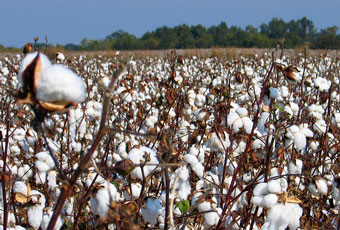
By Agencies
Resurgent mineral exports and foreign investor demand look set to support African currencies in 2010, but an array of local factors, ranging from bad weather to anti-gay legislation, could upset that trend.
The region’s high-yielding debt and strong economic growth prospects are likely to lure foreigners into frontier bond and equity markets that have so far lagged the bounce by their more developed emerging-market counterparts.
“African currencies and equity markets are playing catch-up to the broader emerging market rally. It’s the logical progression of risk,” said Investec analyst Antoon de Klerk.
“But if you’re looking around the world for economic growth, Africa is a good place to go shopping.”
Uganda’s economy, for instance, is forecast to grow 6% next year, and expected dollar weakness and delays in rich countries withdrawing emergency stimulus measures are only likely to increase the continent’s allure.
“The supportive environment for commodity prices and riskier assets is probably going to be around for a while,” said strategist Phumelele Mbiyo at Standard Bank in Johannesburg.
Reflecting global investors’ initial preference for more liquid assets in the post-crisis revival, the rand has gained more than 50% from its depths of a year ago. The rise makes it one of the world’s best performers this year, but a forecast level of R8.12 against the dollar at the end of 2010, from R7.35 now, suggests it may have exhausted its run.
Instead, some analysts believe the rand’s more exotic counterparts to the north, especially those tied to commodities, will catch up as global growth and raw material demand from China and India recover. Top of this list is Zambia, Africa’s biggest copper producer.
Citibank analysts even suggest the Democratic Republic of Congo’s franc may have hit the bottom of a wretched run due to the recovery in copper demand, and agreement last month on a delayed Paris Club debt rescheduling package.
Nigeria and Angola, sub-Saharan Africa’s top two oil producers, are also likely to enjoy a commodity boost, but with the naira and kwanza both kept on tight official leashes, neither unit is likely to post significant gains.
Oil is about to become a major factor in Ghana’s economy, with the start of production at its Jubilee offshore field in the latter half of 2010. Most economists believe the cedi, which lost 30% from August 2008 to July this year due to an election-related spending splurge, will remain under pressure from an inflation rate of 15% that is falling slowly.
Uganda, too, is inching towards the oil-producers’ club, with pundits looking at production of 100000 to 150000 barrels a day by 2015. Analysts see the shilling holding on to its 23% gains since May, with the growing flow of everything from sacks of concrete to fridges into chaotic but booming southern Sudan providing much of the support.
In Kenya, whose shilling is Africa’s most liquid, free-floating currency after the rand, investors are keeping a close eye on politics – for a resurgence of the violence early last year – and the weather forecast. Besides the current drought, an evolving El Niño could unleash meteorological chaos on East Africa’s biggest economy, whose main foreign currency earners are horticulture and tea, erasing the shilling’s 12% gains since March.
For all the talk of conventional forex drivers such as trade data, external portfolio flows and inflation, African currencies can respond to a host of factors that would never arise in London or New York. In particular, the lack of liquidity caused by the absence of developed interbank markets means units can move on events as minor as aid agencies or overseas workers importing dollars.
A case in point is Uganda, where analysts are tracking the progress of a bill advocating the death penalty for habitual homosexuals because of its potential to upset foreign donors.
As with many other countries on the poorest continent, aid accounts for a third of government spending in East Africa’s third-biggest economy, and any withholding of funds in protest at the bill becoming law would hit the shilling. “”
Reuters.
 The Independent Uganda: You get the Truth we Pay the Price
The Independent Uganda: You get the Truth we Pay the Price


